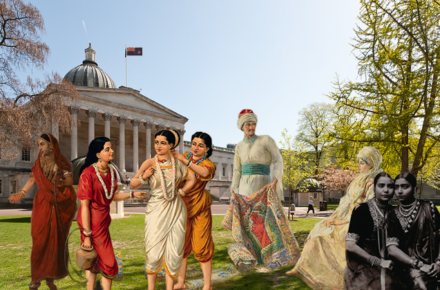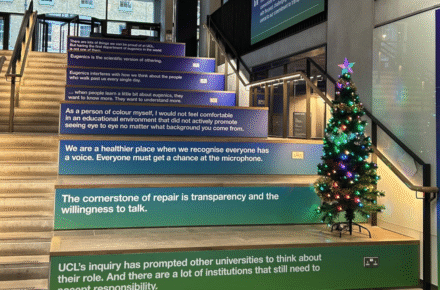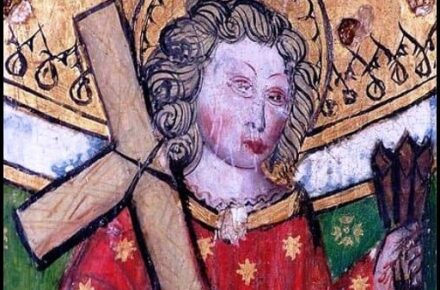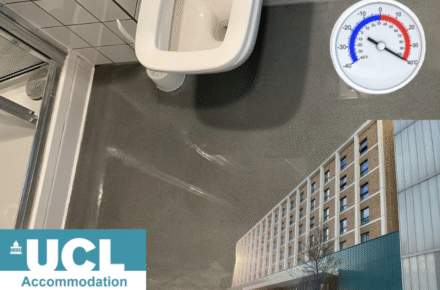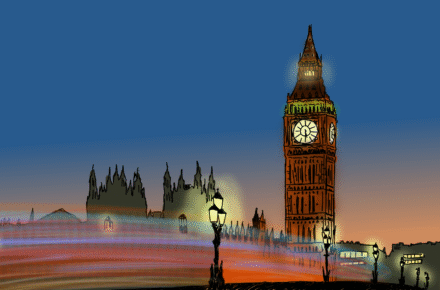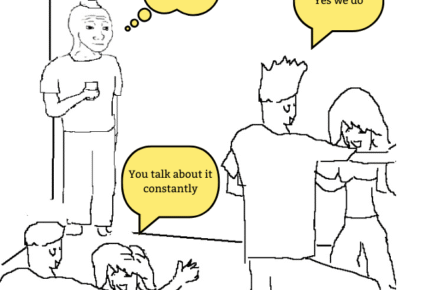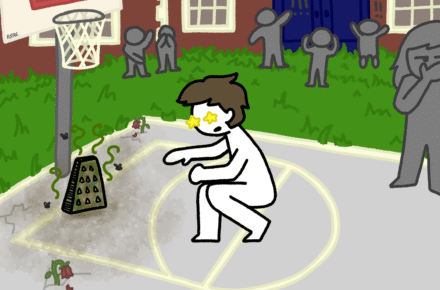Mayra Nassef
As an immigrant, my existence has always been political. To say where I’m from, or even where I’ve lived my whole life, often immediately brings up some essentialist orientalist stereotype in the conversation. Orientalism – a theory coined by academic Edward Saïd in 1978 – refers to the idea that the Middle-East/Asia is often ‘othered’ and represented as lesser than through hegemonic western narratives. When asked to explain ‘orientalism’ simply, I always bring up Disney’s Aladdin. You see, Aladdin is the poster child for orientalism. The city of Agrabah depicted in Aladdin vaguely blends about 10 countries’ cultures together, representing the orient as a barbaric, opulent, poor, conservative, and provocative place. This jarring mix of adjectives perfectly represents what orientalism is: contradictory and essentialist. And hey, I actually loved Aladdin growing up. I guess some peripheral representation is better than none? The protagonists are Middle-Eastern after all. Agraban? Never mind, it’s not a big deal anyways.
Thankfully, Agrabah is a fictional place. While there were some American Republican voters in the faraway year of 2015 who thought otherwise and actually voted in favour of bombing the fictional city, most of us are blessed with the gift of knowledge. Well, kind of. Sort of. Maybe? Microaggressions tell a more complicated story, being a more implicit type of orientalism. Microaggressions are ever so small, often barely noticeable, body language cues or remarks towards minority groups that signal a negative bias towards them. They are often entirely unintentional and are almost entirely based upon internal biases. I can barely count how many “Oh, you lived in Dubai, do you own a lambo?” comments or strange facial expressions when I tell people I’m from Egypt. I can always sense a slight over-eagerness as they ask which religion I follow, with the optional follow-up question of why I’m not wearing a hijab. Yes, these are all microaggressions too. My personal favourite is “Wow, you speak really good English!” Just assumptions I guess, no big deal.
I’ve received many facial microaggressions when introducing myself – in London and beyond. I can only describe these expressions as a mix of pity, bemusement, and sometimes even surprise? The look of “you’re so brave as an oppressed Middle-Eastern woman to be here” or “wow, how exotic!’ It’s a stark difference from when someone introduces themselves as being from a Western country, they often just receive a look of nonchalant interest in response. It’s a frustrating experience to feel like you’ve already lost as soon as you’ve introduced yourself. You know someone’s either in the process of categorising you or that you’ve already been categorised. It’s why I often delay the introduction of my background or try to omit it completely. But you know what? It’s okay. It can never be as bad as when that one guy asked me if I lived in a pyramid (true story). No big deal.
I always add that I grew up in Dubai, when in reality I’ve mostly lived just outside of Dubai; people always express confusion when they discover that Dubai is not actually a country. It’s happened so much that I’ve altered the way I introduce myself. If the conversation continues, I would go on to explain that Dubai is a city in the United Arab Emirates, and that Dubai is not even the capital of that country. I had to explain this very point to a university’s administration in the Netherlands when I was applying for my undergraduate degree there. I don’t blame people, it’s not their fault; it’s systemic orientalism. Well whatever, I’m bad at geography too, I guess. No big deal.
Growing up in a post-9/11 world, hiding my identity when I travel is all I’ve ever known; to not speak Arabic in public, to not openly share where I’m from, and to assure people that I’m “not like those other scary Arabs!” I don’t even know what it means to be a “scary Arab” as I’ve seldom met anyone like that in reality. I’ve been ashamed of who I am for my whole life: watching depictions of Middle-Eastern people on TV that are degrading, upsetting, and occasionally fetishistic (this is just as bad). You’re either a “scary Arab”, or a hot, scantily clad woman. Belly-dancing harem or scheming terrorist. An object of disgust or desire. An object, only. Those dichotomies don’t even scratch the surface of many other derogatory and contradictory depictions out there. My experience is not mine alone. It’s a collective one. And it’s only recently that I’ve started to open up to others about it.
Recently, I’ve spoken to UCL students about these aforementioned orientalist depictions of the Middle-East. Especially with people who similarly have Middle-Eastern roots. They feel the same. Some have never been taught Arabic – the fear of being recognised as Middle-Eastern runs that deep – it’s internalised racism and self-hate. The feeling of “why was I born this way?”, and, “Why can’t people see me as the normal person that I am?” It’s either proving that you’re a model minority who’s a stellar representation of your minority group or someone who plays into the orientalist stereotypes projected onto them. This is manifested by consistently bringing up your background or portraying yourself in archetypes to be more easily accepted. I used to tell myself that it wasn’t a big deal.
Moving to the Netherlands three years ago, I realised that I had been naïve, I realised I shouldn’t be ashamed of my identity. This change of heart only happened after two years of living there, mind you. My national identity was inescapable. I immediately ran into bureaucratic issues because Rotterdam (the city I lived in) couldn’t accurately process certain foreign passports that have different name distinctions. I was registered as a “.” (yes, a literal full stop) for my first name during my entire stay. Try as I might, nothing changed. Name issues with exam registrations, roll-calls, and driving tests commenced. In my final year, I contacted my university’s student publication to alert them to this issue, hoping to raise the issue to the city hall. There is hope. Well, either way it’s no big deal.
The symbolic insinuation of registering an immigrant as a “.” was quite alarming. It’s something I wrote in my motivation letter for my MSc at UCL. I felt so embarrassed every time my name came up on screen and I felt bad for others who had the same issue. Most of the immigrant students facing this issue were Middle-Eastern/Asian. After studying there for years, I realised that things had to change for me, and for other minority immigrants. We cannot be seen this way. To have people persist in telling me that they know my culture more than I do and to insist that I’m an oppressed woman who needs saving bothered me to the core. Is this all there is to people like me? Headlines? Pity? Tokenism? Whatever – I’ll use humour as a coping mechanism. I always have.
I had to start speaking up for myself, and not let other people speak for me. I was no longer going to hide where I was from. I was going to mend my Arabic, which I’d neglected for so long, by signing up as an Arabic tutor at my university. But in a way, that was still political. A reclamation of my identity still felt like I was trying too hard. Ehh, no big deal. Then things started to take a turn for the worse: headlines again. Shooting at my undergraduate university. Religiously motivated? War again in the Middle-East. War again in the Middle-East. Collective trauma on both sides. A lack of understanding; the dissolution of safe spaces and moments of mourning. With us or against us. Mutuals who don’t know if their family is safe. Mutuals who have lost people. Both sides facing rising hate crimes; both sides as marginalised communities who have been historically degraded. Both sides being unable to talk to each other. Depictions of sufferers as objects of pity, not people. Not people. Never been people; just headlines. Not addressed in university. Nothing. No big deal.
At the end of it all, I’ve realised something. There’s no use lamenting it all: the fact that I feel unsafe to be who I am, or the stereotypes that come with it. I was born this way, and it is what makes me special – no matter how ridiculous and second-grade-classroom-talk that sounds. To navigate the current climate as an international person (in every way possible) with Arab roots is something that I shouldn’t be ashamed of. Maybe I will never be able to escape the model minority archetype or the orientalism attached to me, but I can try to unlearn it. Everyone can.
Everyone can and should matter. We all know that headlines never tell the full story – literally. Our stories need to be shared by us. The more I’ve travelled, the more I meet people who have such interesting backgrounds and struggles, the more I’ve found that we are all quite similar in that. Not being colour-blind, but normalising our existence. Because being who I am, it’s no big deal. What is a big deal is to be able to be open up about our experiences and talk about our similarities and differences. To always practise empathy. Always. It’s what we so desperately need in these times. It’s what will get us through, eventually.


